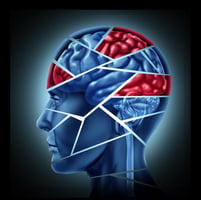People who experience psychosis following the use of cannabis, hallucinogens, or amphetamines...
Study Examines Patient Recovery 10 Years After First-Episode Psychosis

Nearly a third of patients with first-episode psychosis (FEP) had recovered at 10-year follow-up based on a standard clinical definition of recovery, according to a report in Schizophrenia Bulletin. Recovery rates were higher still among FEP patients who had been diagnosed with bipolar spectrum disorder, with 50% meeting the criteria for recovery.
“Clinicians must communicate this to [patients] receiving a psychosis diagnosis as it can contribute to increased hope of recovery and reduced pessimism and stigma, ultimately promoting chances of recovery,” wrote Carmen Sorensen, Ph.D., of the Oslo University Hospital and colleagues.
The study involved patients who had recently experienced a first episode of psychosis between 2004 and 2012 and were recruited for the Thematically Organized Psychosis (TOP) study. As part of the TOP study, patients who met DSM-IV criteria for schizophrenia or bipolar spectrum disorder were evaluated at one- and 10-year follow-ups.
The researchers used a standard clinical definition of recovery focusing on remission of psychotic symptoms and adequate functioning to evaluate 142 patients from the TOP study. Psychotic symptom remission was defined as a score of 3 or less on measures of positive, negative, and disorganized symptoms using the Positive and Negative Symptom Scale (PANSS). Adequate functioning was defined as full-time occupational functioning in terms of work, study, or other (for example, full-time child rearing); social functioning (for example, meeting a friend at least once weekly); and independent living (for example, residing in an unsupervised home and maintaining activities of daily living). They also included 117 age- and gender-matched healthy controls for comparison on measures of functioning.
Of the 142 patients in the analysis, 31.7% met the criteria for clinical recovery at the 10-year follow-up, with 59.9% achieving psychotic symptom remission for at least 12 months and 32.4% achieving adequate functioning. The clinical recovery rate was significantly higher among patients with a bipolar spectrum diagnosis (50.0%) compared with those with a schizophrenia spectrum diagnosis (22.9%). Among the healthy controls, 18.8% did not meet the standard criteria for adequate functioning, “suggesting that these criteria are too strict,” the authors wrote.
When the researchers adjusted the criteria for adequate functioning (for example, part-time instead of full-time work/study/other and having a close friend or confidant instead of weekly contact), they found that the recovery rate in the group of patients increased to 40.8%.
“The increase in recovery rates … with looser criteria illustrates how recovery rates are partially dependent on how they are defined,” the researchers wrote. “This knowledge allows for meaningful conversations with [patients] about the many forms that recovery can take.” The authors also noted that because most of the patients were in remission, treatment should focus early on regaining functioning and employment.
For related information, see the Psychiatric News article “New Network Collects Real-Time Data to Improve Treatment of Early Psychosis.”
(Image: iStock/Tero Vesalainen)
Don't miss out! To learn about newly posted articles in Psychiatric News, please sign up here.






